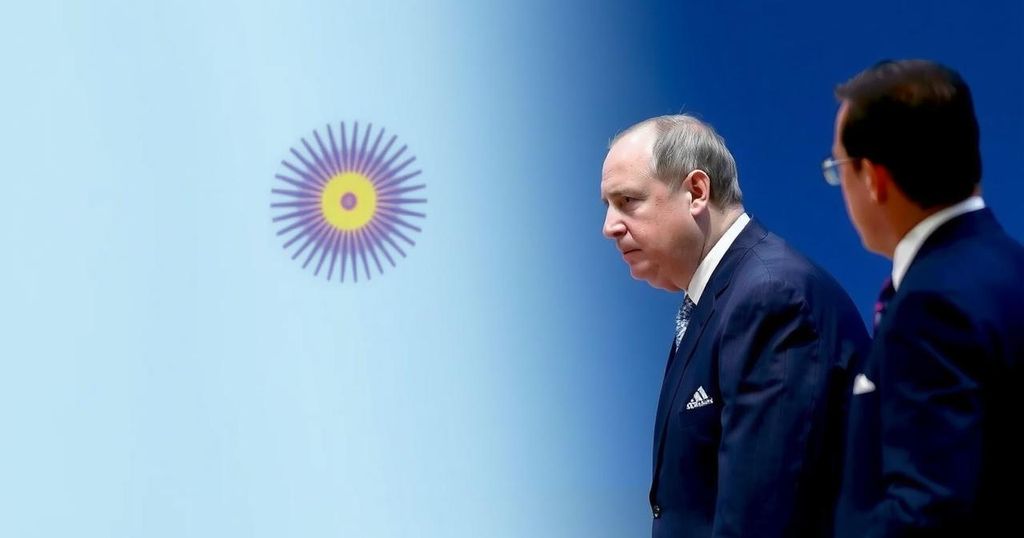Argentina Withdraws Negotiators from Cop29, Threatening Climate Commitments

Argentina has withdrawn its negotiators from the Cop29 summit in Baku, Azerbaijan, after just three days, raising concerns about its commitment to the Paris Agreement. Under Javier Milei’s leadership, who has downplayed the significance of climate change, this decision could jeopardize Argentina’s role in vital climate negotiations and affect future trade agreements with the EU and Mercosur.
Argentina, under the leadership of climate science denier Javier Milei, has withdrawn its negotiators from the Cop29 summit in Baku, Azerbaijan, after only three days. This move raises serious concerns regarding the stability and commitment to the Paris Agreement. Previously, Milei referred to climate change as a “socialist lie” and expressed intentions to withdraw from the pact but later reversed this position. Argentina’s undersecretary for the environment, Ana Lamas, confirmed the withdrawal, indicating that the decision is restricted to Cop29, though it raises questions about potential future actions concerning the Paris Agreement. Representatives from over 80 Argentine negotiators were engaged in discussions about climate finance necessary for energy transition when the order to leave was given. Climate change expert Carla Chavarria emphasized that this withdrawal diminishes Argentina’s role in critical negotiations, effectively sidelining the country from securing essential resources needed to combat the climate crisis. Groups dedicated to human rights and climate advocacy expressed disappointment at Argentina’s absence, highlighting the country’s previous leadership on related issues. The political context is further complicated by Milei’s administration, which has pursued rollback of environmental regulations aimed at promoting economic interests since taking office. Additionally, analysts are concerned that this withdrawal could hinder potential trade agreements between the European Union and South America’s Mercosur bloc, as environmental standards are paramount in such discussions. Observers predict this decision reflects a broader ideological stance detrimental not only to Argentina’s environmental commitments but also to its long-term economic interests, especially with escalating impacts of climate change firmly affecting the nation.
The context of Argentina’s withdrawal from the Cop29 summit is set against Javier Milei’s administration, characterized by its skepticism regarding climate science and commitment to environmental issues. Following his election last year, Milei downplayed the severity of climate crises, branding them as mere political fabrications. This stance, along with an agenda aimed at dismantling prior environmental protections, raises alarms among climate advocates who see potential threats to international agreements that regulate climate change prevention. The implications of such political decisions extend beyond environmental impact, influencing trade relationships and economic decisions within the region.
In conclusion, Argentina’s abrupt withdrawal from Cop29 signifies not only a deviation from its historical engagement in climate negotiations but also a troubling trend under the leadership of Javier Milei. As the nation retreats from vital discussions on climate finance, it risks its participation in establishing essential resources to combat the climate crisis. This move raises broader questions regarding Argentina’s future commitments to global environmental agreements and poses potential barriers to international trade collaborations, underscoring the grave implications of such ideological shifts in governance.
Original Source: www.theguardian.com








